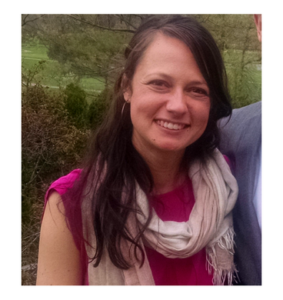 Denise Reesor is program director at Anabaptist Disabilities Network (ADN). ADN serves to nurture communities and congregations into becoming more inclusive to families and individuals touched by disabilities. She also studies school psychology where she loves learning about how to support the learning and emotional needs of children. Denise can be contacted at Denise@adnetonline.org. She lives in Goshen, Inidiana with her husband and attends East Goshen Mennonite Church.
Denise Reesor is program director at Anabaptist Disabilities Network (ADN). ADN serves to nurture communities and congregations into becoming more inclusive to families and individuals touched by disabilities. She also studies school psychology where she loves learning about how to support the learning and emotional needs of children. Denise can be contacted at Denise@adnetonline.org. She lives in Goshen, Inidiana with her husband and attends East Goshen Mennonite Church.
The despair of depression has left my ability to hope, wounded and fragile. As we gather in advent to celebrate the hope of Jesus’s incarnation, I wrestle to understand my own experience with hopelessness.
Indeed, for me, hopefulness is the first casualty of mental illness. And when my hopefulness and vigor for life start to slip, fear, bitterness and self-dislike take its place — a sorry exchange to be sure.
When hope eludes me, I understand how utterly I depend upon it. I realize that hope holds a material form in my body. Hope fills my bones and circulates through my blood. Hope is what keeps me walking, breathing and … expecting a future.
Hope can crumble in the wake of depression, because in the darkness of depression, there is no longer any sense of safety. Too much feels stripped away. Sleepless nights can dismantle any perceived inner strength. Teary-ness is embarrassing. And an endless emotional-emptiness feels too burdensome to subject friends to. In these times, it is hard to envision a future, impossible to make plans. For so long, this is what my hope was tied to, a promise and a pathway towards a bright and joyful future.
As my relationship to depression deepens and familiarizes, I am accepting that there are gifts that also come along with the suffering. And that the dark deflated experiences of hopelessness can birth a new version of hope. One that is more persistent, enduring, and resilient.
Within her poem, Blessing for a Lonely Night, Jan Richardson writes,
“When you have made my soul
as dark as the nighttime sky,
and when the shadows
are my only companions;
then, O God,
turn my face upward,
that I may know the grace of the stars
and give myself to rest.”[i]
In the times when I feel bereft of resources, there is nothing I can do except to look outside of myself for hope. I have cried out to friends for help, I have surrendered my own plans for the future and I have let go of unreasonable expectations. From this deep sigh of giving up, I am reminded that I was never expected to generate everything I need on my own. I was never expected to feel hope and cheer at every stage, and I find that rest can be had even without the certainty of safety or personal strength.
My hope has been bashed and bruised by depression. It is not as optimistic and peppy as it once was. And in all honesty, I often miss the light-hearted, easily come-by, hopefulness that I once held.
But in its place, a more advent-like hope has grown. It is a hope that still knows longing every day. It is a hope that understands that I cannot plan a protected and comfortable future for myself or loved ones.
But it is also a hope that fully expects that God’s presence will provide the people, the help and the rest that I require, bit by bit … day by day.
For those of us experiencing this advent as a season of hopelessness — take courage. Just as Mary set out on a difficult mission with scant provisions, so too we can head out fearlessly without enough, expecting God to meet us along the way with a donkey, a barn to rest in and a partner that can be convinced to make the journey as well (using more modern resources perhaps!). Use your own darkness to illuminate God’s relentless presence.
And for those for whom lightness and joy do greet you this advent season, I encourage you to be God’s hands gently turning the faces of the hopeless to the stars. Be a nonjudgmental listener. Refuse to be afraid of someone else’s sorrow. Invite those who need companionship into your home and family gatherings. Give the gift of a massage or provide respite for caregivers. Above all, be present — seeing your own hope as a commodity that can help others keep walking, breathing and expecting.
To all of you, whether you are weary, grief stricken, lost in depression or joyful, lighthearted and cheery, or most likely somewhere in between, we wish you God’s daily sustaining presence this Advent season and into the coming new year.
_________________________
[i] The full blessing can be found in Jan Richardson’s book, Night Visions

